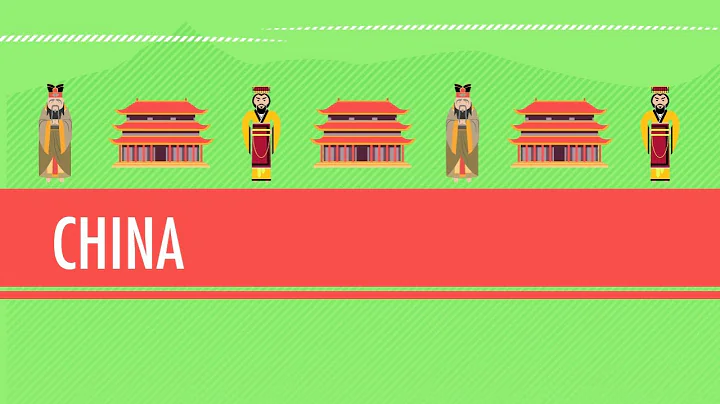Our country has a vast territory, and many places celebrate the sixth day of the sixth lunar month. The legends and customs are also different.
During the Dragon Boat Festival, I posted four different legends, including Qu Yuan, Cao E, White Snake, and Wu Zixu!
There are many legends about June 6th:
One of the legends:

During the Jin Dynasty, people believed that June 6th in the lunar calendar was the birthday of Dayu. Huang Fumi of the Tang Dynasty said in "Emperor Century": "There was a Yang family in Lian Na, and Yu was born in Shiniu. The people of the county thought that Yu was born on June 6th. On that day, he was smoked and repaired naked, and he took it as a rule." The ceremony of worshiping Yu was still held in the Song Dynasty, and the court designated this day as the "Tiankuang Festival". Su Shi said in his poem "Crossing Tushan Mountain in Qizhou": "People in Huainan say that Yu was born on June 6th, and tens of thousands of people would gather on the mountain on that day." The record in "History of Song Zhenzong Ji" is even more vivid , it is said that on this day, "slaughtering is stopped in the capital, and hundreds of officials go to the Qing palace to carry out incense." Although slaughtering is stopped in the palace, the people can kill pigs and sheep in large numbers and cook them. Among the people, June 6th is also known as the "Festival of Sacrifice to the Gods".
Legend 2:

During the Spring and Autumn Period and the Warring States Period, Hu Yan, the minister of Jin State, was arrogant and arrogant, which made his relative Zhao Shui angry to death. One year when the Jin State suffered a disaster, Hu Yan went out to the capital to collect grain. The son-in-law wanted to take advantage of Hu Yan's birthday to kill Hu Yan to avenge his father. After Hu Yan's daughter found out, Xingye rushed back to her parents' home to report the news so that her father could be prepared. Hu Yan released grain and returned to the city. He was shocked when he heard about it. He knew that he had done something bad and regretted it endlessly. Not only did Hu Yan not blame his son-in-law, he also corrected his own mistakes. Afterwards, every year on the 6th day of the sixth lunar month, Hu Yan would take his son-in-law and daughter home for a family reunion. Later, it spread to the people and gradually became a festival for women to return to their parents' homes, which was called "Aunt's Day".
Legend Three:

The eminent monk Xuanzang of the Tang Dynasty took Buddhist scriptures from the West (India) and returned home. When he was crossing the sea on the way, the scriptures were soaked by the sea water, so he could take them out and dry them in the sun on the sixth day of June. Later, this day became an auspicious day and also a festival in Buddhist temples - the Festival of Interpretation of Scripture. Initially, the palace displayed the dragon robes for the emperor on June 6th. Later, among the people, every household would dry their clothes in front of the gate or in the yard on this day. Gradually, this became common practice.
In addition, there is a saying in Yangzhou that Emperor Qianlong encountered heavy rain on the way to Yangzhou and his coat got wet. It was difficult to borrow people's clothes to replace it, so he had to wait for the rain to clear up and dry the wet clothes before wearing them. The day for drying clothes happens to be June 6, so this day is said to be "dragon robes for drying".
Legend 4:

Song Zhenzong Zhao Heng was a very superstitious emperor. One June 6th, he claimed that God had given him a heavenly book, asking the people to believe what he said and did, and designated June 6th as the day During the Tiankuang Festival ("Tiankuang" is a commonly used word in ancient Chinese, meaning "a gift from heaven"), Zhao Heng also built a grand Tiankuang Hall at the Dai Temple at the foot of Mount Tai.
Customs of June 6th: Watching the Grain Show, Insect King Festival Old Beijing often said "June 6th, watching the Grain Show." In fact, this proverb is popular in most parts of the north. There is a libretto in the famous Ping Opera "Flowers as Matchmakers": "On June 6th, watch the grain show..." According to solar terms, June 6th is close to the summer heat, with high temperatures, sufficient sunlight, and abundant rain. Autumn crops are growing vigorously, and grains and millet are growing vigorously. The ears are heading one after another, and the old farmers predict the success of the autumn harvest by observing the growth of the crops. On this day, people worship the "Insect King" to prevent insect disasters and ensure a good harvest. A farmer's proverb in Wu'an Mountain District, Hebei Province goes: "On June 6th, old men ride on donkeys to see the beautiful grains." Spring grains in mountainous areas are planted early. They grow waist-high and have ears in early June. Old farmers ride on donkeys to watch the beautiful grains. , to predict the abundance and apology. In the Xuanwei area of Yunnan, people kill pigs and sheep on June 6th to worship the earth temple god, so that "the land will not open its mouth and the tiger will not eat people." In Gaizhou, Liaoning Province, there is the Bala Temple Fair on June 6th, which is an activity to drive away insects and pray for rain. There are numerous Arhat activities in Shanguo Temple in Beijing to divine good and bad luck. Among the people in Shandong, people worship Dongyue Emperor God and hold Dongyue Temple Fair on the sixth day of the sixth lunar month.
Picking up aunts, Daughters' Day In some areas of the Yellow River Basin and the Yangtze River Basin, June 6th is called "Daughters' Day" for "picking up aunts".Every June 6th, the married daughter takes a bath and changes clothes, then takes her children and husband back to her parents' home happily for a few days to reunite with her parents, sisters and brothers. The natal family will also bring out the best food to entertain them warmly. Later, it evolved into the "Xiaxia Festival" in some areas. This festival is similar to "Meeting Auntie". On June 6th, married girls have to bring fried dough sticks back to their parents' home to see their parents. There are also some remote mountainous areas that call June 6th the "Walnut Festival" because walnuts in the central and western regions of my country have "kernels" around June 6th and taste very sweet. In the mountainous areas of Henan Province, on June 6th, women must bring some walnuts with them when they return to their parents' homes for their parents to try.
Although the daughter often wants to return to her parents' home, when she can return depends on whether her husband's family can leave. For example, during busy farming seasons and festivals, the daughter has to work and help at her husband's family. The sixth month of the lunar calendar is a slack period for farmers, which provides conditions for the daughter to return to her parents' home. On June 6, the child will also go to his grandmother's house with his mother. When he returns, the child will have a red mark printed on his forehead, which is a sign to ward off evil and seek good fortune. When Henan women return to their natal homes on June 6, they make dumplings to honor their ancestors. In addition, in Yuzhong, Gansu, at the temple fair on the sixth day of the sixth lunar month, women seeking a child will kneel by the Taibai Spring, fish out stones from the water, and then wrap the stones in red cloth to pray for a child. Today, it seems that this is a feudal superstitious activity.
Dog's Birthday, Book Exhibition Festival As early as the Tang Dynasty, it was popular among the people that "on June 6th, the sun will be red and green." Red and green refer to clothes and quilts of various colors, which will not become moldy or mothed after being exposed to the sun. A folk legend in Heshui County, Gansu: "On June 6th, silk is dried." It is said that if people put on or cover the clothes and bedding that have been dried on this day, they will not suffer from diseases such as sores. "Yanjing Chronicles" also records: "The capital will dry clothes and books on June 6th, saying that there will be no insects." In the palace, "luanjia" and dragon robes are to be dried, and the emperor Shicheng is to dry files and books. Xiang Weizhen's "Yantai Notes" also says: "June 6th is not a seasonal day, but the emperor Shichen of the inner palace exposed the great records of the saints and the imperial collection of the saints, and there are many stories every year." On this day. , Buddhist temples and Taoist temples will also hold grand "Sutra Drying Assembly", and the monks will worship the Buddha and chant sutras. If the weather is fine, the monks will take out all the sutras from the sutra collection building to dry them. The scholarly family also responds to the occasion, and the display of calligraphy and paintings is called the "book display festival"; rich people "display their banknotes", but if they have too much money, they are afraid of mold! The rich would dry their clothes, bedding and leather goods, but the poor would also dry the bottom of their boxes. Pharmacies should display raw and cooked medicinal materials; clothing shops should display clothing; leather goods shops should display leather goods; wedding sedan shops should display the embroidery pieces of sedan chairs, table surrounds, deacon flags and umbrellas, and the clothes, shoes and hats of the sedan bearers; There is a "robe-showing party" in the City God's Palace, where the gods are unpacked to show off their robes and get new robes for the gods. It's a busy time!
What’s even more interesting is that in the early years, there were no anti-corrosion and mildew-proof items, so people based on their subjective imagination believed that the well water on June 6th could prevent mildew. , rush to the well platform to collect water and store it, saying that using it to make sauce and vinegar will not be too picky, and the quality is pure and the taste is good, which is the best product. In some areas, on June 6th every year, people use tung oil to coat the doors, windows, columns and beams of wooden structures, which is said to be waterproof and resistant to rot.
In the Jiangnan area, after the Huangmei Day, clothes hidden at the bottom of boxes are particularly susceptible to mold. On June 6th, people must take them out to dry in the sun to avoid mold rot.
In addition, there is an interesting story about bathing cats and dogs, which is called "June 6th, cats and dogs bathe together." During the Ming and Qing Dynasties, on June 6th, the Royal Luan Yi Guards washed elephants in the moat, and went to Siyuan. The official school bathed in Jishuitan. Folks pay attention to "washing the dog's head" and bathing cats and dogs in a nearby pond. It is said that on June 6th, domestic animals that have been bathed will not get lice. People jokingly call this day the birthday of cats and dogs. There is a saying in Yangzhou that "On June 6th, bathing is white; cats take a bath, and dogs take a bath." In the old days, folk women would wash their long hair on June 6th to ensure that it would not be greasy or dirty in the future.
Tiankuang Festival, many delicacies. Because there is a saying that "if you don't steam on June 6th, there will be no wind in the field", so every family must steam buns and bean buns. Otherwise, there will be no wind in the field during the autumn harvest, and the pellets will not be put into the warehouse in time.The most popular thing to eat is "wrapped rolls", also called "wrapped rolls". It is not difficult to make. Just mix the dough, roll it into a cake, and roll it with pumpkin shreds mixed with fine salt and peppercorns. Steam in a basket. When cooked, dip it in vinegar and minced garlic and eat it.
Central Inner Mongolia is an alpine agricultural area. On June 6th, people try new things to reward the gods. "June 6th, dry silk and braised mutton with zucchini, beans and string beans." In the morning, I went through boxes and cabinets and dried red and green clothes all over the yard. The staple food for lunch is steamed pancakes, which are similar to "wraps". The dishes are tender zucchini and slender beans, paired with fresh mutton. It is a rare nourishing and delicious food; in Weihai, Shandong, there is a saying that "June 6th, see As the saying goes, "Guxiu, a big bowl of steamed stuffed buns and a packet of meat", every household eats big meat buns to pray for good weather and a good harvest; in Liaoyang, on June 6th, people solemnly celebrate the "Insect King Festival" - go to the valley of Xiu Sui. I went to burn incense to worship Lord Chong, and the offering was yellow rice glutinous rice paste. What is glutinous rice cake? The yellow rice noodles are filled with adzuki bean filling and wrapped in pineapple leaves into a long flat shape, which looks like a dumpling. It is called "pineapple leaf dumpling" locally. Generally, three, six, or nine sticky dumplings are offered, and three, six, or nine sticks of incense are offered to correspond to the auspicious number. Pray to the Lord of Insects to take back his horses (i.e. locusts) and prevent insect infestations in the fields to ensure the harvest.
A Shanghai proverb goes: "On June 6th, the sun will make duck eggs ripe." It is said that this day is the hottest, and raw duck eggs can turn into mature duck eggs when exposed to the sun. People like to eat wontons with cabbage and meat to avoid summer borers. Good men and women eat vegetarian food on this day, which is called "June Vegetarian Day". On the morning of June 6th, in Dongtai County, Jiangsu Province, the whole family, old and young, congratulates each other and eats cake crumbs made of flour mixed with sugar and oil. As the saying goes, "June 6th, after eating cake crumbs, you will grow flesh." This is an example. It is popular for Yangzhou people to make dumplings for lunch on June 6th. It is said that eating dumplings on this day will not cause summer sickness.
June 6th is a lot of entertainment. There are many entertainment activities on June 6th of the lunar calendar. There are many entertainment activities. There are dragon boat racing activities in Guangdong. In Shandong, people think that June 6th of the lunar calendar is the birthday of the lotus. Therefore, during the festival, people Appreciate and pick lotus flowers, and there are a large number of lotus toys for sale in the market. Women and children also like to use lotus juice to dye their nails.
On the sixth day of the sixth lunar month, ethnic minorities also have many colorful celebrations. The Miao people's "Singing Festival", the Yao people's "Half-year Festival" and "Clothing Festival", the Tibetan people's "Sounding Waves Festival", the Manchu people's "Insect King Festival", the Buyi people's "June 6th", the Tu people's "Huaerhui" and so on.
What’s more humane is that June 6th of the lunar calendar is also the common “birthday” for all 66-year-old people in the world. All senior citizens aged 66 and older, no matter what month or day they are born, will celebrate their birthday on the sixth day of June. Married girls also have to go back to their parents' home to celebrate their parents' birthdays on this day, and the gift is a large piece of fat meat. Therefore, there is a folk saying that "at sixty-six, eat a piece of meat", which also means longevity.
No matter how different the customs are in various places, one thing is the same, that is, June 6th is a peaceful and clean festival. Looking at the beautiful ears of the grain and praying for a good harvest are the best wishes of hard-working farmers; protecting people from mildew, mildew and moisture, and taking a bath to clean themselves express people's desire for health and tranquility.





















